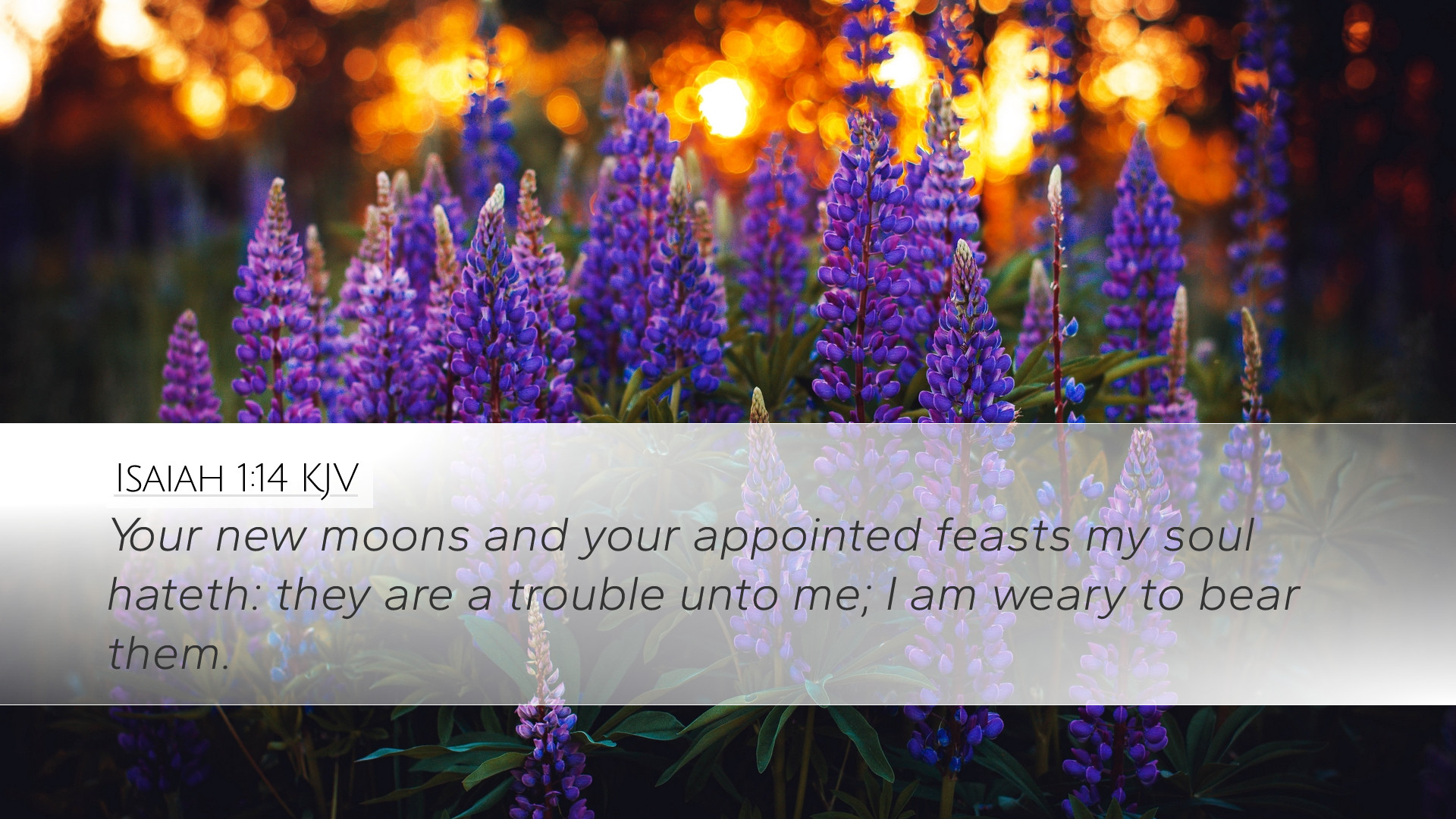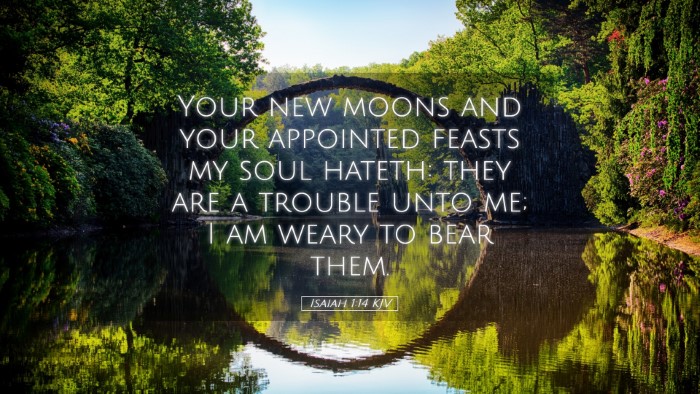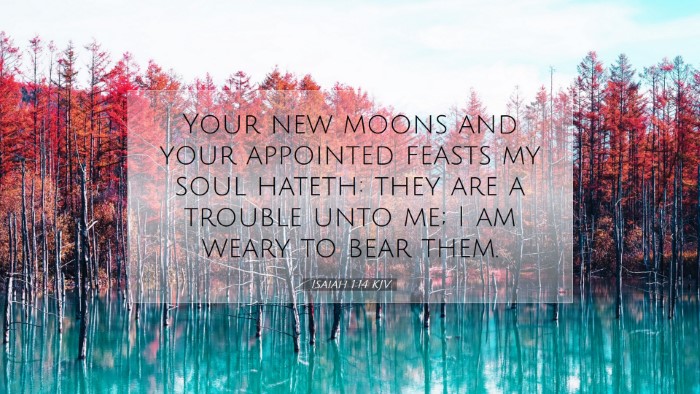Commentary on Isaiah 1:14
Isaiah 1:14 (ESV): "Your new moons and your appointed feasts my soul hates; they have become a burden to me; I am weary of bearing them."
Introduction
The book of Isaiah is a profound prophetic work that encompasses themes of judgment, redemption, and the holiness of God. In Isaiah 1:14, God speaks through the prophet Isaiah to express His disdain for the empty religious practices of His people. This commentary aims to synthesize insights from respected public domain commentaries to elucidate the weight of this verse.
Contextual Background
Isaiah prophesied during a tumultuous period in Israel's history, a time marked by social injustice, idolatry, and spiritual decline. The people of Judah engaged in ritualistic observance of religious feasts and ceremonies while simultaneously committing grievous sins against God and one another. Isaiah conveys divine discontent with their ritualism, highlighting a disconnect between outward religious practices and inward spiritual realities.
Exegesis of the Verse
The phrase "your new moons and your appointed feasts" reflects the Jewish calendar of religious observance, including festivals ordained by God. However, God attests that these acts have become meaningless and tiresome to Him. The underlying message is clear: ritual devoid of genuine worship and ethical living is an abomination to the Lord.
Interpretation from Matthew Henry
According to Matthew Henry, this passage reveals God's displeasure with mere formality in worship. He emphasizes that God values the heart and integrity of worship more than the ritual itself. Henry notes that a "new moon" and "appointed feast" were intended to be times of joy and reflection, yet they had turned into burdensome formalities. This reflects a broader truth about the nature of worship: it must come from a sincere heart and a genuine relationship with God.
Insights from Albert Barnes
Albert Barnes expounds on the cultural and historical context of the Israelites' worship practices. He illustrates how the rituals were intended to express gratitude and devotion towards God; however, they became mechanical and devoid of meaning. Barnes highlights that God is not merely concerned with the observance of rituals but rather with the ethics and lives of the worshippers. He points out that true worship must be accompanied by righteousness and justice toward others.
Reflections from Adam Clarke
Adam Clarke focuses on the emotional tone of the verse, describing God's weariness with the people's insincere worship. Clarke argues that the "burden" mentioned by God serves as a poignant metaphor for the spiritual fatigue experienced by both the divine and the community. He outlines the essential principle that communion with God should invigorate believers rather than exhaust them, and insincerity in worship only leads to spiritual depletion.
Theological Implications
This verse presents critical theological reflections for contemporary readers, emphasizing the nature of worship and divine demands. It reveals that God seeks authenticity in worship rather than mere cultural compliance. The implications extend to various aspects of faith practice, suggesting that sincerity, ethical living, and justice are as vital as ritual observance.
Contemporary Application
- Value of Authentic Worship: Churches today often face the challenge of balancing tradition and genuine worship. This passage serves as a reminder for pastors and leaders to foster environments where heartfelt worship is prioritized over rote participation.
- Holistic Faith: The disconnect between faith and practice highlighted here applies to modern believers. A call for a faith that engages the whole person—mind, heart, and action—remains significant. The message encourages believers to examine whether their spiritual practices align with a life characterized by righteousness.
- Call to Justice: Since the Lord values justice, believers are urged to act justly towards others, aligning their worship life with their daily ethical conduct. This is particularly relevant in social advocacy among churches today, wherein worship must inspire action and empathy for the marginalized.
Conclusion
Isaiah 1:14 presents a powerful indictment against empty religious rituals, challenging both ancient and modern worshippers to reevaluate the sincerity and impact of their worship. Insights from classical commentators enhance our understanding, inviting reflection on the nature of our relationship with God—one that is grounded in authenticity, justice, and love. As believers, we are called to engage in worship that delights God's heart and transforms our character, ensuring that our acts of devotion resonate with the very essence of our faith.


